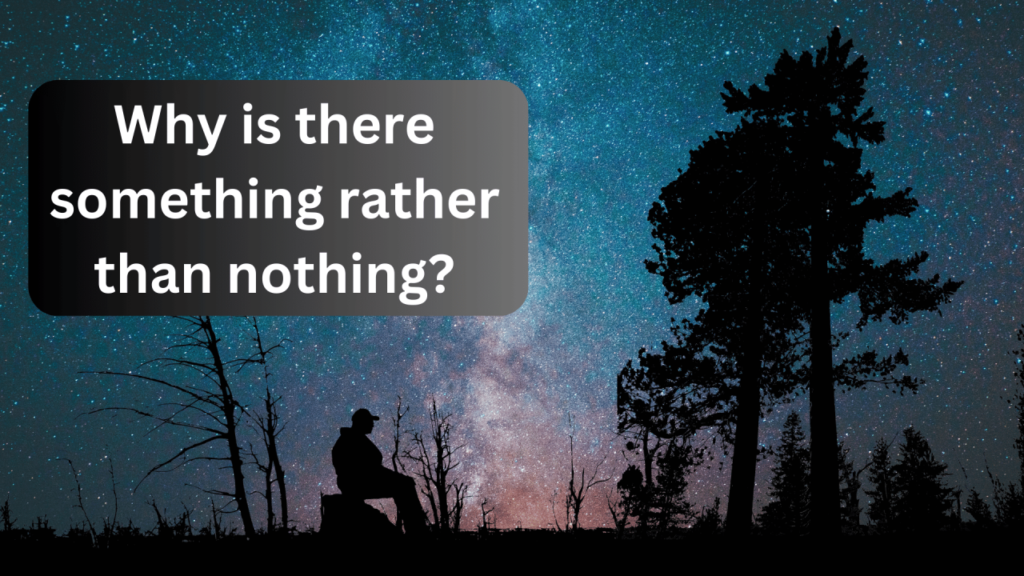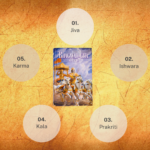The question “Why is there something rather than nothing?” has been debated by philosophers and physicists for centuries. Philosopher Martin Heidegger once called it the fundamental question in philosophy. This fundamental question about existence raises various theories and arguments. The existence of something is evident since an observer is required to note anything. The question focuses on the reason for existence itself rather than specifics like the universe or time. We can split the reflections of great thinkers into two main categories.
Affirmation that something exists:
- Necessity: Some things may exist necessarily without any cause, like mathematical truths or natural laws are assumed to preexist the ontologies they describe in a particular model of reality. Aristotle used to refer to this as an uncaused cause. Such a stand attempts to stop the infinite regress of causal explanations.
- Causal chains and infinite regress: The concept of infinite regress suggests something has always existed; otherwise, the regression is not guaranteed, or it has stopped at some point. Vedanta sutra stops the infinite regress by affirming that the regression stops when we accept the “source of all possibilities” as the root.
- Brute Facts: Some philosophers, like Bertrand Russell, argue that the universe exists as a brute fact without an explanation. For Russell, asking “Why does the universe exist?” is, in some sense, a meaningless question because it presupposes that the universe requires an explanation. Philosophers like Gottfried Leibniz and Thomas Aquinas opposed the idea of brute facts, insisting that the existence of the universe needs an explanation, often turning to God as the ultimate cause. This is the natural choice when one stops the scope of reality to mere physical observation and inference.
- Quantum Mechanics (QM) explanations: QM does not account for causality at a single event (observation) level. Quantum vacuum states may spontaneously generate particles. However, that vacuum is the source of all possible physical states. So, apparent “nothingness” from which everything germinates is the reservoir of all that will come.
Arguments against answering:
- Beyond experience: Some argue that the question is unanswerable, as it lies outside human experience. Probably, this is a more honest scientific reply.
- Causality may not apply: David Hume argued that causality is a human habit of thinking and may not apply to the universe’s origin. He suggested that the universe could exist without a cause, challenging the assumption that every event must have one. This view supports the idea of the universe as a brute fact, where the need for a cause is not a fundamental principle of reality.
In this context, it is worth mentioning that the Chatuskoti system, drawn from classical Indian logic, presents four possible positions or alternatives for any given proposition:
- It is (affirmation),
- It is not (negation),
- It both is and is not (simultaneity),
- It neither is nor is not (beyond both affirmation and negation).
The Nasadiya Sukta (Rig Veda 10.129) reflects the Chatuskoti system, which explores four possibilities about existence:
- It is: The One existed, self-sustaining, before creation (affirmation).
- It is not: There was neither existence nor non-existence, only a void (negation).
- It both is and is not: Darkness and cosmic waters coexisted, suggesting a blending of being and non-being (simultaneity).
- It neither is nor is not: The origin of creation is unknowable, even to the gods, going beyond any logic (beyond both).
Thus, what we conclude is that there is no definite answer to the question raised, rather it opens up a plethora of critical thinking about our existence and creation. However, we all know that the world exists and we experience it as real. Vaishnava philosophers of India have argued that the experience is real although the world maybe illusory as opposed to illusion accepted in the Advaita understanding. All Vedanta philosophers accept that the source of all possibilities is that something from which everything emanates.



